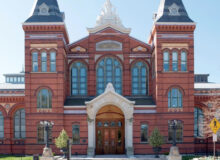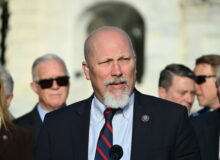The hue and cry for, ” There ought to be a law “ has been heard by the politicians who have little else to offer for their presence. There are laws that regulate businesses, as if a business owner is more to be watched than a politician. There are laws that regulate workers as if there was more to be concerned about in a worker’s performance than a politician or a bureaucrat. There are laws that regulate building, food production, medicine production and distribution, transportation and a myriad of other activities that project a mistrust for those producing but gives a pass to those charged with creating and enforcing regulatory laws. This premise, that the regulators are morally superior, has given us less freedom to operate, made conformance a norm, stifled innovation and by costing so much, debased our currency, inflated our dollars and left us with a national debt that is impossible to visualize.
But this result of our cry for more and more laws is not the ultimate cost of believing a regulated economy is necessary and inevitable. The ultimate cost is the corruption that must proceed as the credit and currency available to the politicians dries up. Why you ask,” Is corruption the result of regulation?” The answer is it is the logical sequence of demanding obedience via regulation. The businessman who wants to continue in business after looking at the costs of regulation and compliance can only survive as a businessman if there is some “exception” granted that allows him to continue at a profit. This is the reason tax laws are so closely scrutinized by business. Payola and lobbying are a necessary way of life in an economy where the politician holds the life of the business owner in his hands. Where else can the businessman go? And what can he hope for if not an exemption to the regulation that is strangling his business? And of course as the businessmen diminish , the consumer faces the shortages and rationing that can only come from the strangled economy of the regulators.
Black markets are not a result of an unfettered market but the result of laws that restrict and ration via the politician’s whim. And who is always on the lookout for favors and payola? Those who have produced nothing and have nothing to trade except a protection racket that they impose via regulation. A legitimate politician would recognize he has only the protection of the individual to offer via the availability of a police force or an army. But granting the monopoly of force without limitation soon evolves into a government gone wild, meddling in all affairs, spending beyond its means and becoming more and more corrupt as the producers try to entice the politicians to either grant them favors or leave them undisturbed. This creates gang warfare. Each business cries they are being discriminated against and each believes the competitor is getting favored status. And the slippery politician always has his door open to listen to what he can do to grant a favor and receive some political support to perpetuate his tenure. The most regulated countries always have the most corruption simply because it is necessary for the victims and advances the benefits of the power brokers in political office.
Try to imagine a situation where a highly regulated country would be without corruption. In such a country no one would be on the take, no one would seek political favors ( or grant them), there would be no exceptions to the rule of law and the producers would be totally hamstrung by the regulators peeking from behind every corner to play “gotcha”. And who would choose to do business in such an environment? Not the innovator or the entrepreneur. Why risk what will be confiscated , regulated and given to competitors with political pull? The risk taker cannot win in a contest where the rules favor the parasite waiting to get his via the regulator granting and expecting favors.
Where the regulations are lax or nonexistent the reputation of the tradesman is the badge of stature. He who makes the most customers happy wins in the marketplace and he doesn’t need to pander to the thugs waiting to be bought off via contributions to campaigns or pet projects. This leaves the politicians with a very limited role and a very limited amount of resources to carry out their schemes. If war erupts the tradesman knows the army must be supplied and he would rather do this than risk conquest and the resultant regulation and corruption of the would be conquerer. This is the same thinking that convinces the volunteer soldier to fight for his country.
But the politician doesn’t trust the people who vote for him or the ones who finance his schemes. He demands taxes because he is convinced no one would voluntarily pay him for the defending the country. Therefore he forces payment for his services and then expands on that wedge to finance any and every thing he can dream of to do. And by doing so he contributes to a destroying a country where money is eventually worthless, payola is necessary for survival and the ancient bowing to the king is again brought to fruition. This is why no civilizations to date have survived without collapse. It started with regulation and ended with corruption. In the early years before regulation was fully implemented the country prospered. But as the politicians became more demanding and effective ,the tradesman could not compete with the parasites that sought political favor and the tradesman’s reputation became worthless without free competition to allow him to show what he could accomplish in a free market.
The most fanatical become the rulers of the regulated economy because they are the ones who are the true believers in regulation. They demand the purity of absolute regulation and foolishly think the tradesman without political pull can survive. What the country ends up with are a bunch of non-producers without any efficiencies in their operation analogous to the communal system of the communists which produced the politician’s weapons but starved the populace. Corruption ran rampant and the inevitable collapse occurred.
This is the pattern of failure that must proceed from a regulated economy. This is the economy we are seeing being implemented in America. “It’s a Free Country” cannot have meaning where the freedom to act and do business is squelched at every turn and the politician must grant approval for action. Who grants the politician his freedom of action? Why is he not limited in scope and regulated in what he can do? Why , if regulation is necessary for the citizen, is it not necessary for those creating and enforcing the regulations? This question has not been asked nor will it be openly discussed. Such is the apathy that comes from tradition and passive acceptance.
Tags: corruption




















Join the conversation!
We have no tolerance for comments containing violence, racism, vulgarity, profanity, all caps, or discourteous behavior. Thank you for partnering with us to maintain a courteous and useful public environment where we can engage in reasonable discourse.